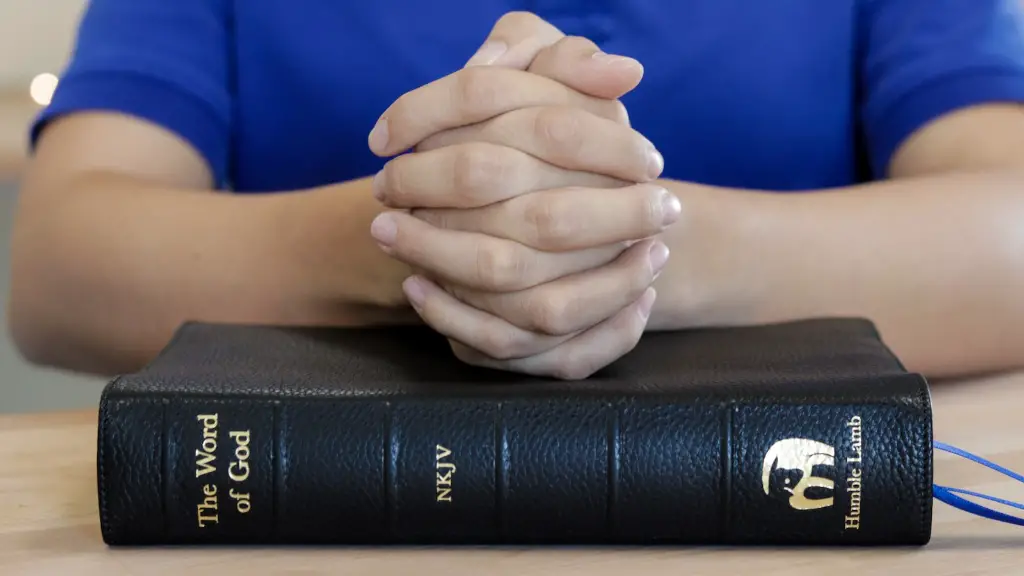What is the Rapture?
The Rapture is an event described in the bible, prominently featured in Christian eschatology – the study of the end times and the second coming of Christ. It is a moment which, according to the bible, will signal the start of the final judgement before the glorious second coming of Jesus. This sequence of events is not always a given in Christian thought, but it remains a popular concept.
Various passages of scripture make reference to the rapture and its promises. One of the best known is 1 Thessalonians 4:17, which reads: “Then we who are alive and remain shall be caught up together with them in the clouds to meet the Lord in the air. And thus we shall always be with the Lord.”
Usually, the Christian interpretation of the Rapture is that it will be a sudden, instantaneous event, in which believers – both living and deceased – will be swept up into the heavens to meet their maker. The dead will be reunited with their bodies, resurrected in God’s power. Traditional teachings also suggest that those who are alive and saved at the time will be spared trial under the coming wrath, and will be secure in the knowledge that the day of judgement is just around the corner.
The Different Theories On When The Rapture Will Occur
Though the date of the event remains forever unknown to humanity, the bible does suggest clues as to when it may happen. Early Christians expected it to occur soon – as scripture encourages them to “watch and pray” – many still do look to the future with anticipation.
The most popular theory for the date of the rapture is the Pre-tribulation rapture theory. This suggests that the rapture will occur before the period of ‘tribulation’ that precedes the second coming of Christ; as a result, believers will be spared the full wrath of God, with the ‘judgement seat of Christ’ spoken of in the bible.
The Mid-tribulation rapture theory suggests that the rapture will occur during the period of ‘tribulation’, with some believers being taken ahead of the coming ‘judgement’ and others taking part in it. It is important to point out that this theory is not unanimous and is not accepted by all Christian denominations.
The Post-tribulation rapture theory suggests that the rapture will occur after the ‘tribulation’ has been brought to its end, with believers all taking part in it. Proponents of this theory point out that believers will still be reunited with Jesus after death; it is just a matter of how much of it will be spent in the tribulations.
Types of Rapture Narratives in the Bible
The different rapture narratives feature in a range of books within the bible. Within the New Testament, the emphasis is on Paul’s work in 1 Thessalonians and 1 Corinthians which speak of the rapture being caught up in the clouds. The book of Revelations also features a rapture narrative, with the events described as the Rapture of the Church.
Elsewhere in the bible, narrative is seen in the story of Lot in Genesis 19, which describes his family escaping a city, taken up in the clouds in a moment of great judgement. This is often seen as a symbol of how believers will be saved on the day of judgement.
Perhaps the most vivid description of the rapture can be found in Ezekiel 38 and 39. This describes a number of forces being gathered from all around the world to fight against Israel in the final battle – a battle which will be cut short by the coming of Jesus. This is seen as a vivid symbolic representation of salvation and judgement, the moment at which God will take over the world and set it right again.
Rapture Imagery in Other Religions
While the idea of being swept up into the clouds during the final judgement is a concept exclusive to Christianity, other religions contain elements which bear similarities to the rapture concept. The Hermetic texts, similar to writings found in the bible, describe a time of chaos believed to be followed by a ‘resurrection of souls’ – a concept closely tied to the rapture.
In Hinduism, it is believed that the Supreme Lord will come one day and take His devotees with Him in the clouds. This mirrors the Christian belief in the return of Jesus to the world and the rapture of those who accept Him.
The Significance of the Rapture
The concept of a rapture, as described in the bible, has a clear and unifying effect on Christian believers. It reinforces Christ’s promise that He has not forgotten them, and will one day come and take his followers to a place of safety and eternal peace.
In a time of almost constant uncertainty, this promise is a soothing one. It means that the faithful can remain steadfast in their beliefs, knowing that they will one day be rewarded. It is not a promise to be taken lightly; it is a reminder to seek out justice and goodness while they can.
The Modern Interpretations of the Rapture
The rapture, as described in the bible, is a fundamental tenet of many Christian denominations. It is an event which is seen as of equal importance to the incarnation and death of Jesus Christ. Many churches today place emphasis on this event when teaching about the significance of the bible in Christian life.
Some modern interpretations of the rapture suggest that the idea can be seen as a metaphor for hope – the idea that we will all be taken away from the forces of evil to a place of safety and security. This interpretation can be seen in the ways in which different Christian communities interpret and celebrate the event.
The Debate Around the Rapture among Scholars and Theologians
The debate around the rapture is one which is as active today as it was when first described in the bible. Different interpretations have been popularised over the centuries, with fervent supporters taking up positions in favour of each.
Today, many prominent scholars and theologians are reticent to comment on the event – some in fear of inciting infighting among believers, while others have argued that the rapture, in light of other events described in scripture, may not be necessary.
The biggest argument hinges around the timing of the rapture. As the bible does not explicitly state when this event will occur, the best that can be determined is that it will happen in some way and at some point in the future – much to the frustration of those seeking absolute certainty.
The Response from Christians to the Rapture
The rapture has long been a source of fascination for believers. It paints a picture of a perfect future – one which holds the promise of an unfettered reunion with God. Many people who lead a Christian lifestyle take comfort in the knowledge that one day soon, the suffering and hard work of this life will pass and something better will come.
It is this hope which drives many Christians to charitable works and a life of goodness. The understanding that they will one day be rewarded – even in the face of persecution and suffering – is a powerful message which brings solace to those who follow Jesus.
The Role of the Rapture in Christian Beliefs
The concept of the rapture plays an important role in Christian beliefs. It reinforces the importance of faith and perseverance, and reminds the faithful of the power and promise of Jesus. Its imagery and language is one which can be found throughout the bible, a source of comfort in a chaotic and uncertain world.
Some theologians have tried to link the timing of the rapture to other events – suggesting that it could be linked with the Rapture of the Church described in Revelations, or the gathering of the nations described in Ezekiel. Though the evidence for this is circumstantial, this is something which is regularly discussed among Christian circles.
The concept of the rapture has been the subject of debate and discussion for centuries now, and this topic is unlikely to abate anytime soon. Whatever happens, it remains an important part of Christian thought – a fundamental belief which shapes the faith of millions.
The Importance of Living Life in the Face of The Rapture
Though the coming of the rapture will inevitably be a moment of joy and reunion for the faithful, it should not be seen as a substitute for living a good life. The promise of a perfect future should not be taken as an excuse for irresponsible behaviour.
Living life in the face of the rapture is about taking pleasure in life, but also striving for goodness in the here and now. It is about living life to the fullest, guided by the truth that one day it will all pay off – and the faithful will be rewarded for their dedication.
This knowledge is what helps believers to endure difficult times, look to the future with hope and rejoice in the present. Though the day of judgement will no doubt be a day of great rejoicing – it must not detract from living each day well and living life to its fullest in the here and now.


